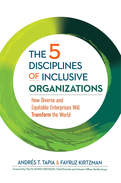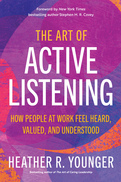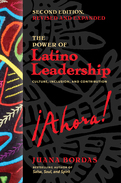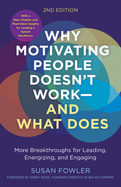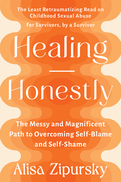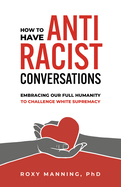Search Results: ""
Results 1225-1230 of 1358
A comprehensive new model for creating inclusive organizations, illuminating the vital role that inclusion plays in developing solutions to the critical social, environmental, and leadership challenges we face.
Most organizational DE&I efforts are focused on changing individual behaviors. But unless you change the organizational structures-the practices, processes, and systems that surround and support individual behaviors-your change efforts will not take root. Structural inclusion makes behavioral inclusion stick.
Andrs Tapia and Fayruz Kirtzman have found that five disciplines encompass the structures, mindsets, behaviors, and accountabilities required for creating inclusive organizations that will have transformational impact not only on their culture and people but also on society and the planet:
1: Manage the Risk: know how to deal with the legal, reputational, and cultural risks of either doing the wrong thing, or not doing the right thing.
2: Explode the Awareness: make sure leaders and employees are deeply informed about, and publicly committed to, the value of DE&I.
3: Maximize the Talent Systems: ensure that leaders and managers display inclusive behaviors when they manage and optimize talent.
4: Master the Logistics: integrate DE&I into operations in ways that lead to improved efficiencies.
5: See the Marketplace: expand to new consumer market segments, enhance cross culturally competent customer service, and form effective partnerships with overlooked communities.
The authors provide assessment tools and case studies of organizations that have implemented each discipline, highlighting what worked and what tripped them up. And they take a wider view, showing how inclusive organizations practicing the five disciplines can address what they call society's four vital tasks: diversify leadership, eradicate polarization, achieve justice, and save the planet. This is a complete guide to how to make your organization a systematic, process-oriented engineer of change for the full range of your stakeholders.
Most organizational DE&I efforts are focused on changing individual behaviors. But unless you change the organizational structures-the practices, processes, and systems that surround and support individual behaviors-your change efforts will not take root. Structural inclusion makes behavioral inclusion stick.
Andrs Tapia and Fayruz Kirtzman have found that five disciplines encompass the structures, mindsets, behaviors, and accountabilities required for creating inclusive organizations that will have transformational impact not only on their culture and people but also on society and the planet:
1: Manage the Risk: know how to deal with the legal, reputational, and cultural risks of either doing the wrong thing, or not doing the right thing.
2: Explode the Awareness: make sure leaders and employees are deeply informed about, and publicly committed to, the value of DE&I.
3: Maximize the Talent Systems: ensure that leaders and managers display inclusive behaviors when they manage and optimize talent.
4: Master the Logistics: integrate DE&I into operations in ways that lead to improved efficiencies.
5: See the Marketplace: expand to new consumer market segments, enhance cross culturally competent customer service, and form effective partnerships with overlooked communities.
The authors provide assessment tools and case studies of organizations that have implemented each discipline, highlighting what worked and what tripped them up. And they take a wider view, showing how inclusive organizations practicing the five disciplines can address what they call society's four vital tasks: diversify leadership, eradicate polarization, achieve justice, and save the planet. This is a complete guide to how to make your organization a systematic, process-oriented engineer of change for the full range of your stakeholders.
Improve communication, engagement, and culture with active listening.
When employees, colleagues, and customers are not being heard, organizational culture, employee happiness, and overall organizational success will suffer. How well do you listen?
Active listening is the doorway to increased belonging, loyalty, profitability, innovation, and so much more. It is the difference between thinking we understand what people want and knowing what they want. Want to build stronger relationships, avoid misunderstandings, and anticipate problems before they surface at work?
All you have to do is listen.
The Art of Active Listening introduces a 5-step framework that shows you how to listen successfully and act upon what you are hearing. Readers will discover how to:
1. Recognize the unsaid
2. Seek to understand
3. Decode
4. Act
5. Close the loop
Backed by her personal review of over 30,000 employee and customer surveys and facilitation of 100's of focus groups, Younger discovered one universal truth: We all want to be heard. We want our voices to matter. We want the work we do to matter.
When we get this right - when we listen to our employees and customers and care about them not just for what they can do but for who they ARE - they can and will move mountains.
Using the tools provided in this book, you can implement active listening, regardless of whether you're in-person or virtual, that benefits all team members and customers, strengthens overall engagement, improves organizational culture and creates a space for everyone to have a voice.
When those at work feel heard, they will do whatever it takes to achieve outcomes that serve your relationship and your organization.
When employees, colleagues, and customers are not being heard, organizational culture, employee happiness, and overall organizational success will suffer. How well do you listen?
Active listening is the doorway to increased belonging, loyalty, profitability, innovation, and so much more. It is the difference between thinking we understand what people want and knowing what they want. Want to build stronger relationships, avoid misunderstandings, and anticipate problems before they surface at work?
All you have to do is listen.
The Art of Active Listening introduces a 5-step framework that shows you how to listen successfully and act upon what you are hearing. Readers will discover how to:
1. Recognize the unsaid
2. Seek to understand
3. Decode
4. Act
5. Close the loop
Backed by her personal review of over 30,000 employee and customer surveys and facilitation of 100's of focus groups, Younger discovered one universal truth: We all want to be heard. We want our voices to matter. We want the work we do to matter.
When we get this right - when we listen to our employees and customers and care about them not just for what they can do but for who they ARE - they can and will move mountains.
Using the tools provided in this book, you can implement active listening, regardless of whether you're in-person or virtual, that benefits all team members and customers, strengthens overall engagement, improves organizational culture and creates a space for everyone to have a voice.
When those at work feel heard, they will do whatever it takes to achieve outcomes that serve your relationship and your organization.
Experience the power of inclusion, community, and taking action! An updated, expanded edition.
By 2045 Latinos will make up 1 in 4 Americans. They are projected to be 78% of the new entries into the labor force in the next ten years. By sheer numbers alone, Latinos will shape the 21st Century. What does it take to lead such a varied and vibrant people who hail from twenty-six countries and are a blend of different races? And what can leaders of all cultures and ethnicities learn from how Latinos lead?
Juana Bordas takes us on a journey to the very heart and soul of Latino leadership. She offers 10 principles that richly illustrate the inclusive, people-centered, socially responsible, and life-affirming ways Latinos have led their community. This model is uniquely suited to this century's multicultural, global age.
This new and expanded edition includes a chapter on intergenerational leadership that recognizes vast generational shifts are occurring: ten thousand Baby Boomers retire every day and Millennials and Zs are the largest generations in history. Six out of 10 Latinos are millennials. This new chapter can guide us in preparing the next generations to take the helm of leadership.
This unprecedented and wide-ranging book shows that Latino leadership is indeed powerful and distinctive and has lessons that can inform leaders of every background.
By 2045 Latinos will make up 1 in 4 Americans. They are projected to be 78% of the new entries into the labor force in the next ten years. By sheer numbers alone, Latinos will shape the 21st Century. What does it take to lead such a varied and vibrant people who hail from twenty-six countries and are a blend of different races? And what can leaders of all cultures and ethnicities learn from how Latinos lead?
Juana Bordas takes us on a journey to the very heart and soul of Latino leadership. She offers 10 principles that richly illustrate the inclusive, people-centered, socially responsible, and life-affirming ways Latinos have led their community. This model is uniquely suited to this century's multicultural, global age.
This new and expanded edition includes a chapter on intergenerational leadership that recognizes vast generational shifts are occurring: ten thousand Baby Boomers retire every day and Millennials and Zs are the largest generations in history. Six out of 10 Latinos are millennials. This new chapter can guide us in preparing the next generations to take the helm of leadership.
This unprecedented and wide-ranging book shows that Latino leadership is indeed powerful and distinctive and has lessons that can inform leaders of every background.
"Leaders who want to amp up employee morale should take a look.-Publishers Weekly
What if the answer to motivating people is to stop trying to motivate them?
The second edition of this bestseller reveals how motivation science is essential for solving the most vexing leadership issues-from hybrid work and retention to employee engagement.
Leaders face a motivation dilemma. Traditional command-and-control management styles and carrot-and-stick motivation techniques have been proven ineffective.
Motivation researcher and leadership consultant Susan Fowler expands on her groundbreaking Spectrum of Motivation model in this updated post-pandemic edition. New chapters tackle motivation science's role in managing remote and hybrid work; expose overused tactics, such as gamification and tokens; and tell the fascinating backstory behind the great resignation and quiet quitting.
Fowler's approach to leadership is fresh, pragmatic, and inspiring. But it's also empirically sound. Her framework builds on Self-Determination Theory, equipping leaders with skills to encourage choice, deepen connection, and build competence. Leaders who mastered this method have experienced breakthroughs with higher retention, lower turnover, greater acceptance of DEIJ initiatives, and a more vital, creative, and resilient workforce.
Through her experiences working with organizations and leaders around the world, Fowler reminds us that motivation is at the heart of everything people do and everything they don't do but wish they did. When managers integrate motivation science into their everyday leadership practice, an evolutionary truth emerges: people can be highly productive and flourish simultaneously.
What if the answer to motivating people is to stop trying to motivate them?
The second edition of this bestseller reveals how motivation science is essential for solving the most vexing leadership issues-from hybrid work and retention to employee engagement.
Leaders face a motivation dilemma. Traditional command-and-control management styles and carrot-and-stick motivation techniques have been proven ineffective.
Motivation researcher and leadership consultant Susan Fowler expands on her groundbreaking Spectrum of Motivation model in this updated post-pandemic edition. New chapters tackle motivation science's role in managing remote and hybrid work; expose overused tactics, such as gamification and tokens; and tell the fascinating backstory behind the great resignation and quiet quitting.
Fowler's approach to leadership is fresh, pragmatic, and inspiring. But it's also empirically sound. Her framework builds on Self-Determination Theory, equipping leaders with skills to encourage choice, deepen connection, and build competence. Leaders who mastered this method have experienced breakthroughs with higher retention, lower turnover, greater acceptance of DEIJ initiatives, and a more vital, creative, and resilient workforce.
Through her experiences working with organizations and leaders around the world, Fowler reminds us that motivation is at the heart of everything people do and everything they don't do but wish they did. When managers integrate motivation science into their everyday leadership practice, an evolutionary truth emerges: people can be highly productive and flourish simultaneously.
Healing Honestly
2023
The Least Retraumatizing Read on Childhood Sexual Abuse.
For Survivors, by a Survivor.
Healing Honestly is a candid, poignant, and often funny survivor-to-survivor guide to navigating the salty waters of untrue stories and victim-blaming narratives that survivors of child sex abuse hear every day.
Survivors of child sex abuse (CSA) are inundated with untrue stories of their abuse, the aftermath, and what their healing journey should look like. The truth is those stories are a bunch of hot garbage.
Healing Honestly is a guide for survivors, written by a survivor, helping to break through the negative self-talk and debunk the myths that impact victims of CSA, such as:
There is a real survivor out there, and we are not it.
It happened so long ago that we should be over it by now.
We are having too much sex because of our trauma, and also, we are having too little sex because of our trauma.
With an approachable style that makes heavy topics not so damn scary, this book shows how trauma survivors can learn to identify these untrue stories that often come up in dating, in friendships, in families, at work, and more. Readers will discover strategies for turning down the volume on the bullshit so that they can hear their own wisdom and inner truth more clearly.
Full of wit and humor, Healing Honestly offers practical strategies for survivors of sex abuse to support themselves in living full and vibrant lives.
For Survivors, by a Survivor.
Healing Honestly is a candid, poignant, and often funny survivor-to-survivor guide to navigating the salty waters of untrue stories and victim-blaming narratives that survivors of child sex abuse hear every day.
Survivors of child sex abuse (CSA) are inundated with untrue stories of their abuse, the aftermath, and what their healing journey should look like. The truth is those stories are a bunch of hot garbage.
Healing Honestly is a guide for survivors, written by a survivor, helping to break through the negative self-talk and debunk the myths that impact victims of CSA, such as:
There is a real survivor out there, and we are not it.
It happened so long ago that we should be over it by now.
We are having too much sex because of our trauma, and also, we are having too little sex because of our trauma.
With an approachable style that makes heavy topics not so damn scary, this book shows how trauma survivors can learn to identify these untrue stories that often come up in dating, in friendships, in families, at work, and more. Readers will discover strategies for turning down the volume on the bullshit so that they can hear their own wisdom and inner truth more clearly.
Full of wit and humor, Healing Honestly offers practical strategies for survivors of sex abuse to support themselves in living full and vibrant lives.
Utilizing Dr. Martin Luther King's Beloved Community framework, activists will be empowered to create change and equity through fierce yet compassionate dialogue against racism and systematic white supremacy.
Can a person be both fierce and compassionate at once? Directly challenge racist speech or actions without seeking to humiliate the other person? Interrupt hateful or habitual forms of discrimination in new ways that foster deeper change? Dr. Roxy Manning believes it's possible—and you can learn how.
In this book, Dr. Manning provides a new way to conceive of antiracist conversations, along with the practical tools and frameworks that make them possible. Her work is grounded in the idea of Beloved Community, as articulated by Dr. Martin Luther King, Jr., as a goal to aspire to and even experience now, in the present, when we refuse to give up on the possibility of human connection within ourselves, with potential allies, and with those whose words and actions create harm. This book fuels courage and provides tools to confront everyday forms of racism. It walks the reader through an effective, efficient model of dialogue that utilizes concepts of nonviolent communication and helps normalize talking about racism instead of treating it like a "third rail," strictly avoided or touched at one's peril.
Readers will
Drawing on her experience as a clinical psychologist, a nonviolent communication practitioner, and an Afro-Caribbean immigrant, Dr. Manning provides a model of antiracist dialogue with practical applications for individuals and organizations.
Can a person be both fierce and compassionate at once? Directly challenge racist speech or actions without seeking to humiliate the other person? Interrupt hateful or habitual forms of discrimination in new ways that foster deeper change? Dr. Roxy Manning believes it's possible—and you can learn how.
In this book, Dr. Manning provides a new way to conceive of antiracist conversations, along with the practical tools and frameworks that make them possible. Her work is grounded in the idea of Beloved Community, as articulated by Dr. Martin Luther King, Jr., as a goal to aspire to and even experience now, in the present, when we refuse to give up on the possibility of human connection within ourselves, with potential allies, and with those whose words and actions create harm. This book fuels courage and provides tools to confront everyday forms of racism. It walks the reader through an effective, efficient model of dialogue that utilizes concepts of nonviolent communication and helps normalize talking about racism instead of treating it like a "third rail," strictly avoided or touched at one's peril.
Readers will
- Be empowered to identify what kind of antiracist conversation they want to have-for example, do they only want to be heard, or do they want to negotiate a change in policy?
- Learn how to engage in antiracist conversations whether they are the Actor (person who says or does something racist), the Receiver (the target of racism), or the Bystander.
- Learn how to notice the underlying needs and values that motivate all human actions and how those values can open up pathways to transformation.
Drawing on her experience as a clinical psychologist, a nonviolent communication practitioner, and an Afro-Caribbean immigrant, Dr. Manning provides a model of antiracist dialogue with practical applications for individuals and organizations.


